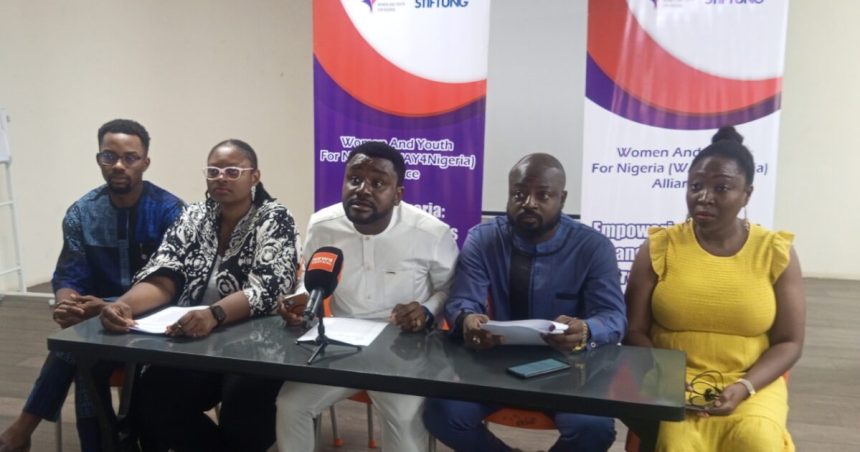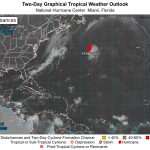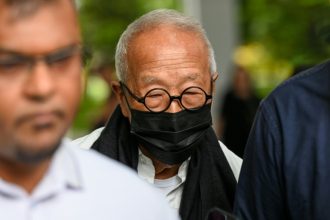The Women and Youth for Nigeria Alliance has called for urgent structural reforms to guarantee the inclusion of women and youth in Nigeria’s political process, warning that continued exclusion poses a threat to the country’s democracy.
At a press conference in Abuja on Wednesday, the coalition said political parties, institutions, and media houses have collectively undermined democratic participation for the majority of Nigerians.
“This regression is unacceptable. “Nigeria cannot continue to pretend it values inclusion while it structurally silences over 70 per cent of its population,” the Chairman of the WAY4Nigeria Steering Committee, Victor Terhemba, said.
The group criticised the current state of representation, noting that only 3.7 per cent of Senate seats and 3.9 per cent of House of Representatives seats are held by women, and youth candidacy has declined sharply since 2019.“The number of youth candidates dropped sharply, largely due to the insane and prohibitive costs of nomination forms imposed by political parties.
“It is not just disheartening—it is deliberate exclusion masked as procedure.
“The exclusion of youths and women from governance not only perpetuates inequality but also jeopardizes Nigeria’s stability and growth.
“Empowering them is essential for harnessing Nigeria’s demographic dividend,” Terhemba said.
The alliance, which comprises 14 civil society organisations and was formed in 2022 with support from Friedrich Stiftung, presented findings from a research study conducted after the 2023 general elections.
It cited high levels of disinformation, economic exclusion, and party bias as key barriers faced by women and youth in politics.
“In the aftermath of the 2023 elections—a contest marked by a dismal 26.72 percent voter turnout—we commissioned a landmark research study titled The Effect of Misinformation and Disinformation on the Inclusion of Women and Youth in Government.
“The study exposed multiple obstacles confronting women and youth in politics and governance,” the chairman noted.
He added that “deeply ingrained harmful social norms that entrench ageism, sexism, and political patronage” continue to shape party culture, while political violence and a lack of internal democracy further restrict access to leadership.
“Disinformation and smear campaigns—especially gendered attacks that portray women as weak, emotional, or unfit, and youth as inexperienced or reckless—are eroding citizens’ trust in our democratic institutions.
“We cannot build a viable democracy on exclusion, violence, and propaganda,” he explained.
WAY4Nigeria also criticised the role of the media in shaping negative public perception.
“There is complicity here. The media cannot continue to amplify narratives that discredit leadership based on age or gender, then act surprised when representation collapses,” Terhemba said
He said reporting often focuses on appearances and family ties rather than policy ideas, adding, “As the fourth estate, it must reject sensationalism and amplify competence, vision, and track record.”
The alliance called on the National Assembly to urgently pass the Reserved Seats for Women Bill, describing it as a test of political will.
“We consider it a litmus test of sincerity for the Speaker of the House of Representatives, Rt. Hon. Abbas Tajudeen, PhD, and the National Assembly as a whole, to demonstrate political will in addressing decades of exclusion,” he said.
WAY4Nigeria also demanded amendments to the constitution and Electoral Act to allow for independent candidacy, reduce the cost of nomination forms, and strengthen protections against political violence and disinformation.
“We have grown tired of endless calls and rhetorical commitments by stakeholders, policymakers, and legislators.
“Nigeria cannot continue to pay lip service to inclusion while reinforcing systemic barriers. It is time for concrete action,” he said.
The group said it has trained over 220 women and youth on countering disinformation and political participation using free public toolkits. However, Terhemba noted that these efforts cannot replace government responsibility.
“Civil society can do the groundwork, but without institutional reform, we’re simply patching holes in a sinking ship,” he said.
Closing the briefing, Terhemba issued a stark warning, “The exclusion of women and youth is not just a women’s issue or a youth issue—it is a national crisis that undermines our democracy, stifles innovation, and erodes trust in governance.
“No nation can achieve socio-political stability or economic development while shutting out the majority of its citizens from leadership and decision-making.”









